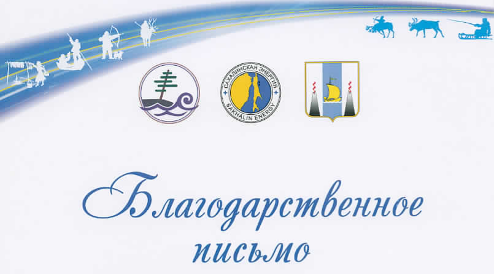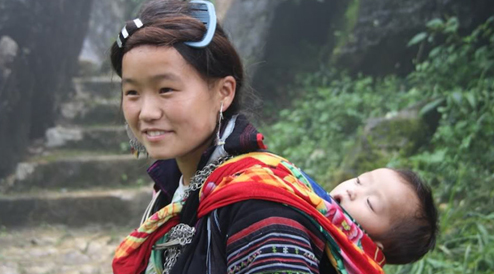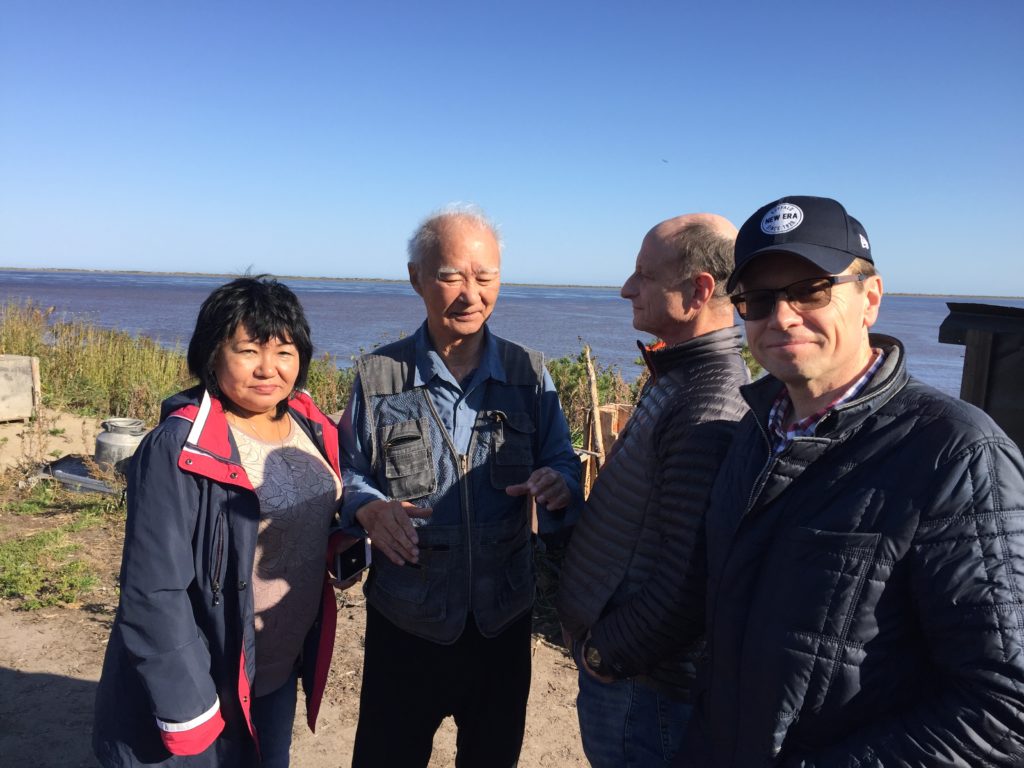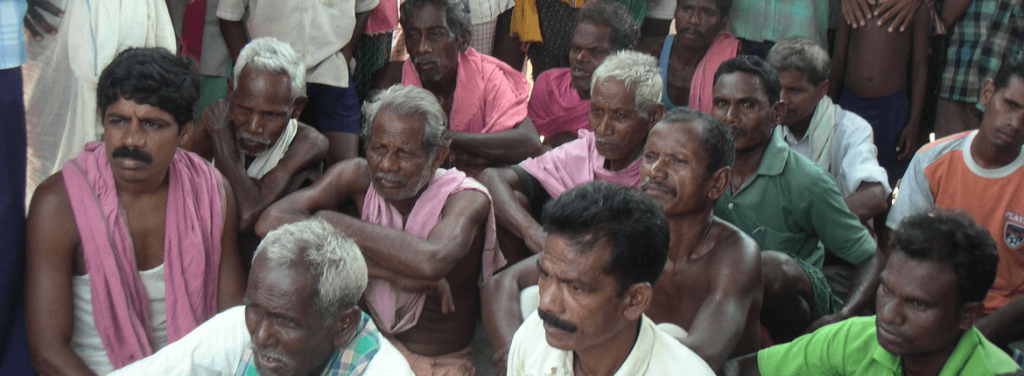- 2015 Sakhalin Indigenous Minorities (SIM) Certificate of Appreciation
In 2015, CCCS received this “Certificate of Appreciation” for the work CCCS has done for the development of the Sakhalin-2 Project’s Sakhalin Indigenous Minorities Development Plan (SIMDP). The Certificate was awarded at the FPIC Conference of 26 November 2015 in Yuzhno-Sakhalinsk, where Sakhalin’s Indigenous Minorities (SIM) gave their Free, Prior and Informed Consent (FPIC) to the SIMDP, by the three partners of the SIMDP: the Sakhalin Oblast Government, the Regional Council of Authorized Representatives of the SIM, and the Sakhalin Energy Investment Company.
Междyнарoдная им. Витycа Беринга (The Vitus Bering Ethnic Diversity Award)In March 2013, CCCS received the Vitus Bering Ethnic Diversity Award (approximate translation) from the Russian Association of Indigenous Peoples of the North, Siberia, and the Far East (RAIPON) [Ассоциация коренных, малочисленных народов Севера, Сибири и Дальнего Востока Российской Федерации (АКМНССиДВ)].
It was awarded for excellence in engagement with Indigenous Peoples in the context of the Sakhalin Energy Project.
The 2007 IFC Stakeholder Engagement Good Practice HandbookBeginning in 2005, CCCS assisted Sakhalin Energy Investment Company to turn around a contentious relationship with the local indigenous communities and to formulate an Indigenous Peoples Plan. This Plan evolved into a global model—the “Sakhalin Model”—of positive collaboration between the local Indigenous Peoples’ Organizations, the local regional government and the company. In this volume, CCCS’ work with the Sakhalin 2 project is provided as an example of good stakeholder engagement practice in a “case study” prepared by EBRD and CCCS.
Publications- A New Paradigm in Indigenous Peoples and Project Engagement (2022)
CCCS participated along with the Nepal Federation of Indigenous Nationalities (NEFIN) in two side-events organized by the United Nations Permanent Forum on Indigenous Issues (UNPFII) and the UN Expert Mechanism on the Rights of Indigenous Peoples (UNEMRIP) during May and July 2022. During these presentations we jointly presented “A New Paradigm in Indigenous Peoples and Project Engagement.” UN EMRIP 7 July 2022 Side Event
The new paradigm: Indigenous Peoples Participation & Partnership Paradigm lays out an FPIC-infused approach to working with Indigenous communities which carries forth the FPIC process from project preparation through project implementation. This presentation describes why a new paradigm is needed and what are the steps projects need to follow to implement it.
FPIC as Indigenous Peoples’ Empowerment Tool: Case Studies from Nepal and Russia (2022)Responding to requests from social development practitioners, CCCS’ Dr. Greg Guldin penned an article describing the origin, contents, and approach of a new paradigm in Indigenous communities and project interactions. Entitled the “Indigenous Peoples Participation & Partnership Paradigm”, the new approach focuses on infusing the FPIC principles of inclusion, transparency, and self-empowerment to all project interactions with Indigenous Peoples: from first consultations, to the FPIC process itself, to the implementation of community or Indigenous Peoples development plans. It was published in 2022 in Resettlement in Asian Countries: Legislation, Administration and Struggles for Rights by Routledge.
Operationalizing FPIC: Tales from the Trenches of Travail & Triumph (September 2017)CCCS President Dr. Gregory Guldin was requested by IFC’s office of the Compliance Advisory Ombudsman (CAO) to discusses his ‘recipe for success’ in helping Sakhalin Energy Investment Company (SEIC) become one of the first private sector companies to achieve free, prior and informed consent (FPIC). This presentation gives practical guidance on how to both achieve and maintain FPIC.
Case Study: Sakhalin 2 and the Sakhalin Indigenous Minorities Development Plan (July 2015)This case study relates the experience of the Sakhalin Energy Project in enhancing how it engages minority communities affected by its operations. Internationally hailed as a success story and a model for corporate-indigenous collaboration, Sakhalin Energy’s experiences provide important lessons for sustainable social development practices and productive stakeholder engagement.
The World Bank Indigenous Peoples of Russia Country Profile (June 2014)CCCS researched and prepared the World Bank’s Indigenous Peoples of Russia Country Profile in collaboration with the Russian Association of Indigenous Peoples of the North, Siberia, and the Far East (RAIPON). It was written to provide World Bank teams with an understanding of the historical, legal and social issues involved in determining whether OP 4.10 should be applied.
Indigenous Peoples and Oil Companies: Respect the Differences (2007)In preparation for the 2007 SPE Asia Health, Safety, Security and Environment Conference and Exhibition in Bangkok, Thailand, CCCS and the EBRD produced this paper on best practices in the extractive industries sector for managing impacts on Indigenous Peoples. It provides an overview of best practices and a discussion on the improvement of international Indigenous Peoples safeguards.
Other publications- Greg Guldin and Aaron Kyle Dennis. 2015. “Practicing Social Development: Navigating Local Contexts to Benefit Local Communities”, Making a Difference? Social Assessment Policy and Praxis and its Emergence in China. Edited by Susanna Price and Kathryn Robinson.
- Greg Guldin. 2005-2013. Sakhalin Indigenous Minorities Development Plan: External Monitor Reports.
- Greg Guldin. 2007. ADB Indigenous Peoples Policy Handbook. Asian Development Bank: Manila, Philippines
- Greg Guldin and Aaron Kyle Dennis. 2007. “The Party Secretary, the Village Head and the Masses: Negotiating Real Contexts in Social Assessment”, Urban Anthropology 36(2):1-2.
- Greg Guldin. 2003. Cultural Diversity in School: A Guide for School Board Members and School Administrators. Washington State School Directors Association: Olympia, WA.
- Greg Guldin. 2001. What’s a Peasant to Do? Village Becoming Town in Southern China. Westview Press: Colorado Springs, CO.
BlogThe CCCS Blog is a space for our experts and friends to share their thoughts on all aspects of social sustainability and development.
Accolades, Publications, and Presentations
This page lists currently available CCCS publications we have produced, presentations we have given, and accolades we have received in the course of our work. If you are interested in finding out more about our experiences and what we do, please do not hesitate to get in touch.
Accolades










